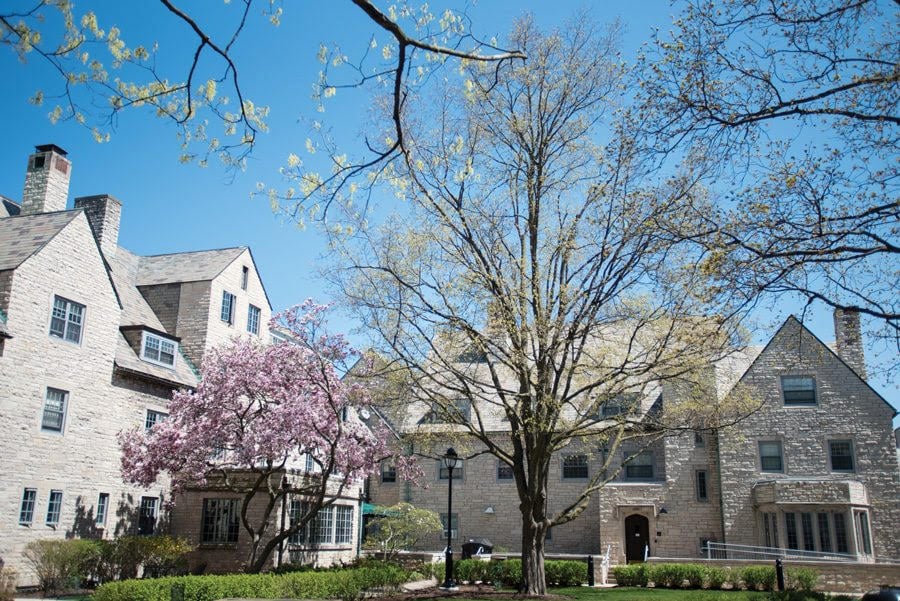Students describe their experience rushing for Greek life
Daily file photo by Colin Boyle
Northwestern’s sorority quad. A recent IPR study reported that women in sororities experience a conflict between their feminist values and the realities of the Greek system.
January 15, 2020
Students coming back from winter break found themselves busy caught in the midst of transitioning back to school and beginning the rush process, as formal recruitment took place during the first two weeks of Winter Quarter.
The fraternity rush process started on Jan. 6 and went until Jan. 9, while the sorority rush process lasted from Jan. 9 to 13. Over the course of four nights, students had to narrow down their choices after visiting all 12 sororities.
The process consisted of four nights of the students talking to the sorority members, listening to their rushing experiences and presentations centered around philanthropy and community and ended with students ranking their top sororities in advance of the bid night. Each night, students had to narrow down their top choices through a mutual selection process in which sorority chapters also vote on potential new members, according to their national chapters’ respective processes.
Compared to sororities, Northwestern has 18 fraternities. While formal recruitment began last week, fraternities were hosting events for potential new members to socialize at the houses all throughout the fall quarter. An example is the Interfraternity Council’s Sunday Night Dinners, where students gather to watch football games and eat together at the houses.
However, for sorority rush, this is the potential new members’ first time interacting with the sorority. This can make the rush process both physically and mentally straining, Medill freshman Olivia Demetriades said.
“For a lot of people, it can feel like Wildcat Welcome but on steroids,” Demetriades said. “After the rush was over each night, I would crash in my room. Managing my time to complete homework was really hard.”
Another challenge, Demetriades said, was having to constantly carry out small talk and start from the beginning with each active sorority member she talked to.
According to Pi Beta Phi member Lauren Lee, the rush structure has not changed drastically from last year. However, two years ago, instead of ranking their top two sororities from the houses they had remaining after three rounds, prospective members could rank a maximum of three.
Lee said this number drop “can lead to some (potential new members) feeling disappointment” but at the same time, it can help them choose one house more efficiently in the end.
Weinberg freshman Hailey Kim said having to visit all 12 sororities in the span of two days was tough as was the process of ranking sororities four out of five days.
“Making decisions and narrowing down my choices to two sororities was really hard after only getting short conversations with the sisters,” Kim said. “The recruitment counselors, who are sort of like the PAs during Wildcat Welcome, helped a lot though.”
Fraternities have also undergone changes. Sigma Nu and IFC President Jayden Logan said there was a new IFC rule this year that fraternities cannot host Wildcat Welcome parties.
One of the first places for students to interact with fraternities was the IFC kickoff event, where members set up booths outside their houses and hand out informational pamphlets to interested students. Logan added there is now an emphasis on meeting potential members in environments other than “crazy off-campus parties.”
Email: kirstenhuh2023@u.northwestern.edu
Twitter: @kirstenhuh
Editor’s Note: The language in this article was updated to be more inclusive of the range of experiences of students rushing Greek chapters.
Related Stories
– Students deactivate Greek life, take Greek relationships with them



